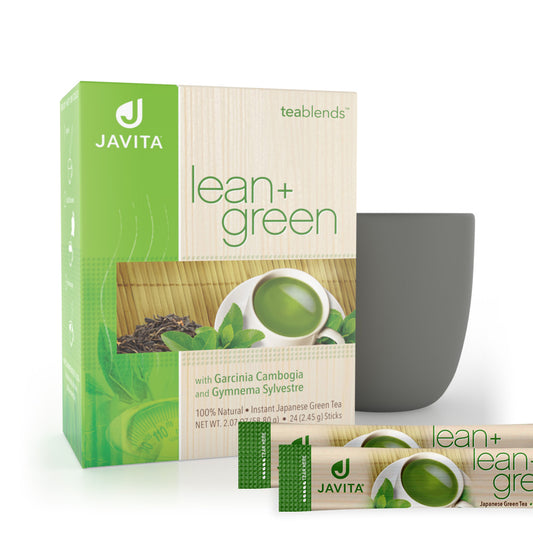Garcinia cambogia, also known as Malabar tamarind, has been consumed by peoples throughout Southeast Asia for centuries. It is used as a food and flavor enhancer but has widespread anecdotal evidence of providing satiation to the consumer, a feeling of fullness after consumption. Because of this effect, researchers began studying the fruit to determine its usefulness in weight management. It was during this research that scientists determined that the naturally occurring chemical hydroxycitric acid (HCA) is the main active constituent providing weight loss potential.
HCA is a non-essential nutrient that is known for its ability to inhibit the enzyme ATP-dependent citrate lyase, which plays a role in the transformation of carbohydrates into fat in the body. It does this by competitively blocking the enzyme as it works to convert leftover glucose into adipocytes (fat cells), a storage mechanism utilized to supply energy at a later date. By blocking this conversion, excess glucose is no longer stored in fat cells and remains available for the body to use as energy. This is how G. cambogia provides an increase in energy levels without containing a “stimulant”, like natural caffeine. An increase in available energy may also assist in increased exercise potential and output, further assisting in weight management benefits.
In addition, HCA has been shown to increase serotonin levels. Serotonin is a hormone naturally produced in the body which assists in regulating mood. Researches have determined that, in many cases, overeating is directly related to emotions and mood. In cases of depression and anxiety, serotonin levels are dramatically reduced. Thus, by increasing serotonin production, negative emotions are diminished, and emotional overeating is markedly reduced.
Helps prevents the absorption of fat cells
Garcinia cambogia extract standardized for HCA content has been extensively studied for its use in weight management. This is primarily due to the mechanism of action of the HCA itself, namely competitively inhibiting the enzyme that converts excess carbohydrates into fat in the body. In the metabolic processes of the body, a particular enzyme called ATP-dependent citrate lyase is necessary to catalyze the cleavage of citrate to oxaloacetate and acetyl-CoA. This cleavage, or separation, is necessary for lipogenesis, or the formation of fat cells. If the enzyme is inhibited, lipogenesis is also inhibited. Therefore, it has been hypothesized and later shown in cellular and animal trials that G. cambogia / HCA can in fact competitively inhibit extra-mitochondrial citrate lyase and reduce the formation of fat cells.
Another study utilized female human subcutaneous preadipocytes collected from obese women which were then differentiated to adipocytes (fat cells) for 2 weeks in culture. This allowed researchers to test the effect of HCA on lipid metabolism as well as study the genetics involved in this process. It was determined that HCA significantly down regulated (or reduced) the expression of fat- and obesity-related genes, supporting the antilipolytic and antiadipogenic effects of HCA from G. cambogia. In other words, HCA was shown to prevent the expression of obesity-related genes as well as the formation of fat cells, reducing weight and improving long term health.
Helps increase energy
The second known mechanism of action for Garcinia cambogia (HCA) may be directly related to its ability to inhibit citrate lyase, as outlined above. The outcome of this action is the reduced formation of fat storage cells from glucose. Therefore, excess glucose remains available in the body to be used as an energy source. Having excess glucose readily available in the body should produce a rise in energy, allowing for the opportunity to burn excess calories. Researchers were able to scientifically demonstrate this property by showing that HCA is capable of activating hypoxia inducible factor (HIF). This is a transcription factor involved in energy metabolism and, when activated, increases the burning of energy.
Energy is also available for use due to garcina cambogia’s ability to assist in fat oxidation. In human clinical trials, urinary fat metabolites significantly increased in subjects taking HCA over an 8-week trial period. Urinary fat metabolites are a biomarker of fat oxidation. If fat is being oxidized, it is being released from its dormant state to be used as energy in the body. Thus, weight reduction is achieved through increased energy expenditure as fat is oxidized.
A pleasant side effect of HCA is the decrease in oxidative stress, inflammation, and insulin resistance associated with obesity. This is a synergistic effect with the other proprietary ingredient and will be discussed in further depth with regards to Yerba mate.
Helps reduce emotional eating
With obesity being a global health epidemic, billions of dollars and countless hours of research have been spent to determine the cause. One of the main causes of obesity and overweight is overeating due to emotional stressors, such as depression and anxiety. Although a highly complex relationship, researchers have shown that various moods can enhance or diminish eating primarily due to a subject’s unique response to pleasure and gratification. For example, eating a particular food may stimulate the production of dopamine, a special excitatory neurotransmitter that helps with depression and focus Dopamine activates the pleasure center of the brain and enlists the subject to continue to consume this food to experience the positive feeling of gratification that dopamine provides.
This repetitive behavior is extremely strong and can override other signals, such as satiety and hunger. Thus, a gratification habit may be formed leading to overeating and obesity. The effect of the individual’s mood can also play a role in the gratification. If the individual is stressed, anxious, or depressed, they may seek gratification by eating foods known to previously stimulate their pleasure centers, thus providing relief from the stressor, albeit for a short period of time. This is known as “stress- or emotional- overeating”.
This weight-loss supportive, appetite-suppressing fruit is featured in numerous products and formulas including our Burn+ Control Coffee, Lean + Green Tea, ActiveBlendz Control and Burn Capsules.






